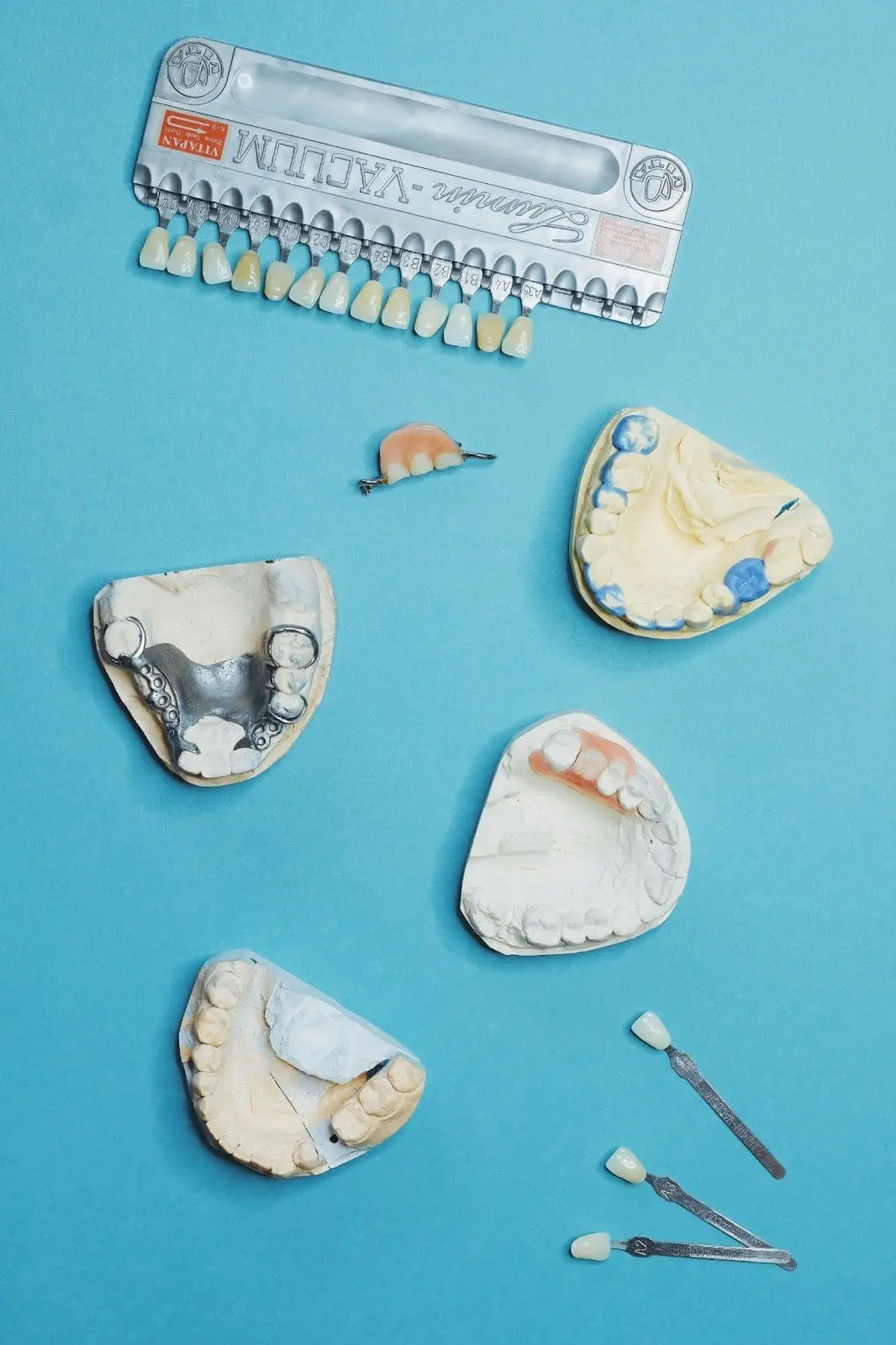Mon - Fri: 9:00 am to 4:00 pm
Contact Info
-
Address
Temple, TX 76502 -
Phone
-
Email
manager.hqdentaldesign@gmail.com
Newsletter Subscribe
Get healthy tips & latest updates in inbox.© Temple Tx Dental 2023, All Rights Reserved.
Dental Implant Dentist
Temple TX Dental
- Home
- Dental Implant Dentist Temple TX Dental
Dental Implant Dentist Temple TX Dental

If you have one or more missing teeth and are looking for a sturdy solution, then your dentist might recommend having dental implants. It is a bit of a long-term procedure but a great alternative to a natural tooth. The whole process consists of three things: Implant Post (a screw that is surgically placed into the jawbone), Abutment (a connector for the crown and implant), and Crown (that looks like a natural tooth). The whole process can take 3 months to a whole year, but it’ll end up providing a solid, real-like tooth.
Dental Implant Dentist is available at HQ Temple TX Dental. So, if you have one or more missing teeth and are looking to fill that gap, visit our clinic. Whether you are looking for new implants or need guidance with current implants, Temple TX Dental welcomes you to our office. Visit us and get satisfactory treatment. We are located at HQ Temple TX 76502 and treat patients in nearby areas. To book an appointment, visit us or call us now at (254) 773-1672.
Ari Marco
HQ Dental team have done fantastic high quality routine and cosmetic work on my teeth as well as my families. There is no better dentist in Georgetown.
Tan Nguyen
HQ Dental is among the best dental clinics I have visited. I think their secret is the true care of patients.
Anastassia Moser
Everyone who worked in my mouth was extremely gentle, yet thorough. They’ve certainly found a patient for life
How Do Dental Implant Dentist Work?
Dental Implants Dentist are titanium fittings that are inserted into the jawbone surgically. The implant is an anchor for a single or a set of realistic-looking fake teeth.
The location and use of the Dental Implants dentist affect the outcome of implant dentistry. The front of your lower jaw is usually their most fantastic location.
Dental Implants are excellent for replacing missing teeth. You must have adequate bone in the area where your teeth are missing for the implants to be anchored in. Not only are Dental Implants used to substitute single teeth, but they are also very beneficial for those missing most or even all of their teeth. More detachable partial teeth and specific types of bridges are being replaced with tooth implants.
Who Qualifies as an Implant Candidate?
Dental Implant Dentists may be a good option whether one or all of your teeth are missing. This surgery can produce excellent outcomes if you possess sufficient bone in the lost tooth region to support the implant attachment. You might need a bone graft if you don't have sufficient bone.
Dental Implants will be an appreciated replacement if you currently wear a detachable partial denture or a modest dental bridge. An option for a permanent bridge is a Dental Implant Dentist. While the crown on top of the implant can last forever, it typically only does so for five to fifteen years.
In Temple, TX, we offer dental implant services by a Dental Implant Dentist at reasonable prices. We can assist you in deciding if dental implants are the best option.

Dental Implant Dentist: A Quick Overview
Your jaw bone is surgically implanted with Dental Implants by a Dental Implant Dentist while you are sedated. When multiple Dental Implants are inserted, the process takes a long time. Finding a qualified Dental Implant Dentist you are comfortable with is crucial because this treatment requires surgery.
A few days pass before the discomfort or agony for some people subsides to varied degrees. Similar to other surgical procedures, bruising, and slight swelling may appear soon after the Dental Implant Dentist operation.
How are dental implants anchored in the mouth?
Implant surgery involves surgically inserting one or more implants into your jawbone by a Dental Implant Dentist. Following this healing phase, you must often wait three to six months before using an implant treatment by a Dental Implant Dentist to replace your missing tooth or teeth. The bone forms around and within the titanium implant throughout this healing period, providing a solid foundation.
Implants for teeth may be refused. They are typically replaced with a slightly larger implant. The probability of rejection or "failure" rate is relatively low, only 5 to 7% of all implant surgeries. Following implant installation by a Dental Implant Dentist, you can often skip wearing your dentures for one to two weeks. A very natural-looking crown is attached to the implant once it has "taken" and you have recovered enough.
As the drilling of the places for dental implants is taking place, the selected bone to utilize is extracted from other areas of your mouth or gathered in a suction tool by a Dental Implant Dentist.
Sometimes the bone is removed surgically from a hip, which calls for an orthopedic specialist, with the expertise of a Dental Implant Dentist. The second source of bone might be obtained from the corpses of humans or different species, such as cows, with the expertise of a Dental Implant Dentist. An artificial sort of bone is the third source that is required. The least favored bone type for this operation is this one.
Different Dental Implant Treatments
Titanium fixtures are put into the jawbone to support implants. Most implants are made of titanium, which osseointegrates with living bone quite well.
Your dentist will go over two different kinds of dental implants with you:
Implant in root form:
This screw-style implant has the appearance of a tooth root. This is the most popular implant used when your jawbone has ample thickness and depth. Bone grafting may be required to accommodate the Root Form implants if your jawbone is too small or thin for its implantation.
Implant in Plate Form:
A Plate Form implant is inserted into your jawbone instead of bone grafting if your jawbone is too short for that. The Plate Form implant is excellent for narrow jawbones due to its flat and lengthy shape, which provides a better fit.
After administering anesthesia, your dentist will expose part of your jawbone and prepare for the implant. How many implants you require will determine how many incisions and bone preparations are required.
Find Dental Implant Dentist At Temple TX
Dental implants are a robust solution for missing teeth. Either you have one or more missing teeth whether it is missing due to cavities, gum disease, age-related issues, or something else. One can benefit from implants and get a rock-solid tooth again.
The whole process can take time the dentist installs implants and then waits for them so the body can infuse with them, Meanwhile, your dentist might give you a temporary crown to fill that gap. But, after a while, the dentist will put the crown on the implant with the help of an abutment. The whole process can take 6 to 12 months but will result in a solid tooth that you can be proud of.
Implants have a 90 to 95% success rate of lasting over 10+ years. If taken care of properly and if the implant is placed correctly then it last 10 to 30 years. Research has shown that if taken care of properly it may last a lifetime. The crown might need to be replaced after 15 to 20 years.
So, if you are looking for an experienced Dental Implant Dentist in Temple TX, can visit our dental clinic and have a conversation with our dentist. We will guide you and consult about everything. For more information visit us or call us at (254) 773-1672.
Frequently Asked Questions About Dental Implants
Dental implant Dentist are frequently referred to as “replacement teeth,” although they are essentially titanium fixture that swaps out the patient’s missing tooth root or roots. The replacement teeth are connected to the implant, which then firmly anchors them to the bone once the prosthetic root or roots fuse with the bone.
New teeth for the patient to function, feel, and appear like natural teeth. Dental implants come in various varieties that are appropriate for different dental issues. Dr. Hiep Pham, a Temple, TX dentist, will discuss what implants best meet your needs.
Dental implant Dentist offer an alternative to:
With traditional dentures, the patient cannot comfortably perform daily activities.
The individual has experienced tooth loss. However, they have expressed a preference for not utilizing removable partial dentures.
Some patients may require a crown or fixed bridge, but they do not want to damage the nearby healthy teeth—the individual who wants a dental treatment is most similar to what Mother Nature produced.
Recent advancements in implant technology have made more people eligible for implants, but not everyone knows their eligibility. Dr. Pham, a specialized dentist with advanced training in implant dentistry, will evaluate dental implants. If a patient is healthy enough to have standard extractions or fixed bridgework treatments, they can also get dental implants.
Dr. Hiep Pham, a dentist in Temple, TX, can typically insert most implants in just one or two appointments. Additionally, additional visits will be required to fit the replacement teeth attached to the implants.
Additionally, the patient’s jaw may need to add bone structure or undergo other changes.
There are now tried-and-true methods for adding bone where it is needed, safely and successfully. This procedure may postpone the implant implantation for several months. The same local anesthesia used for common fillings can be used for most insertions.
With oral conscious sedation or IV sedation, the patient can access medication that will allow them to sleep throughout the treatment. To allow patients to continue their everyday lives while waiting for their permanent replacement teeth to be manufactured, temporary teeth are typically inserted.
Patients have had implants in their mouths for as long as thirty years or more. We advise a preventive maintenance program to help ensure the longevity of your implants and teeth over the long term.
In most circumstances, the price of implant dentistry is equivalent to the price of fixed bridgework or other cutting-edge dental operations. HQ Temple Dentist offers cheap dental implant services.
Dental implants and the associated tooth replacements require the same maintenance as healthy teeth. They are susceptible to gum disease much like natural teeth are, even though they cannot undergo decay.
Temple Dentist likes to put our implant patients on a stringent cleaning regimen to stop any bone loss around the implants.
A dental implant is not as likely to be rejected by the body as a soft tissue implant like a lung, heart, or kidney would be. Titanium, a material compatible with the body, is used to make dental implants.
As teeth are lost, the supporting bone gradually disappears. Problems with a lack of support cause increased pain, movement, poor denture retention, sharp, unpleasant ridges, mobile gums, and sensitive places as this bone diminishes. Additionally, the tongue grows to fill the space.
When a tooth is lost, a function is reduced by five times, and softer foods are added to the diet. The likelihood of lower lip numbness or even a jaw fracture rises with bone loss. Additionally, the treatment we may have given before such significant bone loss will no longer be possible due to this advancement.
It can need further implants or a more involved course of action.
Or it’s feasible that we won’t be able to offer the same course of action now? At the maximum level, the bone loss could be so extensive that a hip graft (using bone from the patient’s hip) would be necessary for the person to have any dentition. For economical dental implant services in Temple, TX, and Bell County, get in touch with HQ Temple Dentist.
Post-Operative Instructions for Implants
The best chance for your tooth implant to start healing subsequently and adequately perform like a natural tooth is to follow these guidelines. Surgery for dental implants is typically far less painful than wisdom teeth extraction.
Many of our patients say their discomfort is highly minor or nonexistent.
Remember that every patient is unique and will feel pain to varying degrees. You can reach our office at +1(254)773-1672 if you ever think that whatever you are going through is out of the ordinary or have any questions.
Bleeding
It is typical for the surgical region to ooze blood after surgery. All day long, apply firm, consistent pressure on the gauze. If the bleeding is still present, change the gauze once per hour.
Stop using the gauze as soon as the bleeding has stopped. By the end of the first day, the bleeding ought to be under reasonable control. Don’t hesitate to get in touch with our office if the bleeding continues or becomes excessive after the first day.
Bone Grafting
You must bite down on the gauze for the first three hours following a bone grafting treatment, regardless of any bleeding at the site. This is a crucial step in the recovery process and must be strictly followed for optimal results. Following these guidelines will help to create an adequate blood clot, which promotes healing at the location of the bone graft.
Change the gauze every hour for the first three hours; if the bleeding has stopped, stop using the gauze. It’s normal to notice tiny, white particles on the gauze or in the surgical region. A small collagen sponge is usually added on the top of the bone transplant to avoid overflows. This is part of the process, and everything is going smoothly.
Rarely does it fall out or become dislodged from the location. Rest assured; there is no need to worry as the bone graft is healing as it should be. Do not panic if you notice the collagen sponge has separated; your bone graft has not been lost.
Healing Abutment
After dental implant surgery, you might find a little metal cap called a healing abutment on your teeth. It might feel strange, but it’s there to help shape your gum tissue and prepare you for your permanent crown. This way, you can avoid any additional surgery on the implant.
Your temporary healing abutment will only be in your mouth for the healing process.
Abutments that are mending may become slack. Don’t hesitate to contact our office immediately if you find that the abutment is becoming loose or has fallen out so that we can repair it.
Stitches
Stitches might or might not be present at the surgery site. Before you leave our office, our surgical staff will let you know whether you do. They typically consist of a dissolving variety of sutures, which dissolve and fall out during the first 5–10 days after surgery.
Diet
You can start eating soft meals as soon as you leave home. When you go home, it’s an excellent plan to eat food so you can start taking your recommended meds.
Milkshakes, fruit juices, mashed potatoes, soups, and soft drinks are among the foods we advise.
Steer clear of tiny, crunchy items like popcorn, cereals, and almonds that could become stuck in the surgery site. Take in a lot of liquids to help prevent dehydration.
Ice Cubes
To help with swelling reduction, place an ice pack over the surgery region on the outside of your face. Use ice packs right away as you arrive at your home. Fifteen minutes of ice pack application is followed by 15 minutes of rest.
For the first 24 hours, keep doing this as much as possible while awake. It’s typical for edema to grow during the first two to three days after surgery. Swelling will also be reduced if you sleep with your head raised.
Activity
For the first two to three days after surgery, rest and avoiding intense exercise will help your body heal more rapidly and reduce swelling. Until your implant has fully healed, avoid any sport or activity that could expose you to a hit to the mouth or jaw. Prescription drugs are usually given after dental implant surgery
It will be easier for you to handle any pain successfully you may encounter if you take the medicine your Doctor recommended. If you have any questions, call our office and follow the instructions on your medication bottle.
Remember that taking your meds before the effects of the local anesthetic wear off will make it easier for you to control your pain. Eating before taking any medication would be best since it is crucial.
This will lessen the likelihood of experiencing nausea or vomiting. Patients who have had dental implant surgery typically receive the following common prescription drugs:
Ibuprofen is an anti-inflammatory drug that decreases swelling and temporarily relieves mild discomfort. Even if you aren’t experiencing any discomfort right away, using Ibuprofen as prescribed will help to reduce swelling and improve your comfort. Many of our patients find that taking Ibuprofen is sufficient to relieve their pain.
Vicodin is a narcotic painkiller with the generic name hydrocodone that is occasionally administered to treat pain. If necessary, you can combine it with Ibuprofen.
However, since it already contains Tylenol, you shouldn’t take it with that medication.
Antibiotics are only prescribed when your Doctor determines that you need them. Please follow the instructions on the bottle precisely until the entire supply has been depleted.
Start using Peridex, a mouthwash with the generic chlorhexidine, the day after surgery. It aims to lessen oral bacterial growth and maintain a clean surgery site. Use it until you return for your one-week follow-up appointment at our office.
